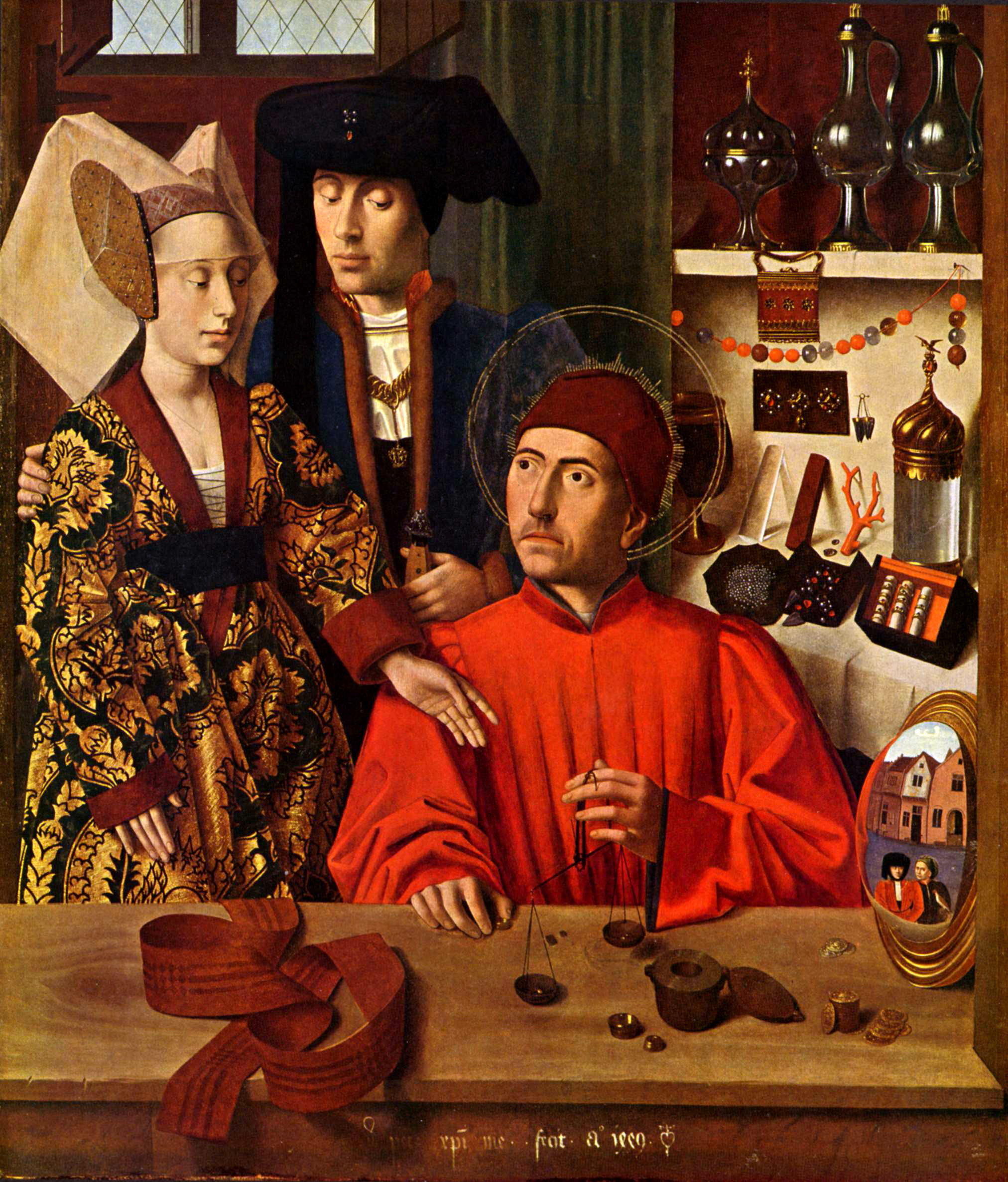Strassen algorithm Created 2025-05-21 Updated 2025-07-16
Polanyi's paradox Created 2025-05-21 Updated 2025-07-16
AlphaEvolve Created 2025-05-21 Updated 2025-07-16
Blog post: deepmind.google/discover/blog/alphaevolve-a-gemini-powered-coding-agent-for-designing-advanced-algorithms/
Whitepaper: storage.googleapis.com/deepmind-media/DeepMind.com/Blog/alphaevolve-a-gemini-powered-coding-agent-for-designing-advanced-algorithms/AlphaEvolve.pdf
Basically they require users to hand-code a metric and provide a program skeleton with some parts of the code marked to be replaced, and then the system focuses on modifying the code regions in question to optimize the metric.
All the novel results they announced were in constraint satisfaction problems or optimization problem. Their results are still awesome, but it's not very different from AlphaGo style things.
Star Wars meme Created 2025-05-21 Updated 2025-07-16
Multiplication of matrices of specific size Created 2025-05-21 Updated 2025-07-16
DeepMind likes coming up with new improved algorithms for these more specific cases, e.g. it was announced in 2025 that AlphaEvolve found a novel 4x4 complex valued algorithm that uses 48 multiplications.
Bibliography:
- fmm.univ-lille.fr/ attempts to keep an up-to-date list for various sizes
Apple II Created 2025-05-21 Updated 2025-07-16
Apple I Created 2025-05-21 Updated 2025-07-16
Steve Jobs' Apple-1 sells for $945k
. Source. Semiconductor device fabrication bibliography Created 2025-05-21 Updated 2025-07-16
Constraint satisfaction problem Created 2025-05-21 Updated 2025-07-16
Saint Eligius Created 2025-05-21 Updated 2025-07-16
Saint Eligius by Petrus Christus
. Source. Eligius pool is named after Saint Eligius, patron of goldsmiths and miners[ref] Magic: The Gathering is Turing complete Created 2025-05-21 Updated 2025-07-16
Related: Antihydra in Magic: The Gathering.
Exploration-exploitation dilemma Created 2025-05-21 Updated 2025-07-16
Dimensionality reduction Created 2025-05-21 Updated 2025-07-16
Updates Translation of Xi Jinping saying those against raise their hands Created 2025-05-21 Updated 2025-07-16
Updates Understanding the state of 3x3 matrix multiplication Created 2025-05-21 Updated 2025-07-16
After yet another awesome announcement by DeepMind that it had improved theoretical 4x4 matrix multiplication reducing the number of scalar multiplications with its AlphaEvolve system, I decided to have a look at the smallest open size 3x3 to understand what was going on in there.
RoboCasa Created 2025-05-13 Updated 2025-07-16
Updates Two Linux Kernel Module Cheat videos Created 2025-05-13 Updated 2025-07-16
I made not one but two quick presentation videos about my project Linux Kernel Module Cheat, an emulation setup to study and develop the Linux kernel and more:
- www.youtube.com/watch?v=HDJFyCma32U: a presentation of me talking about it, edited up from my earlier presentation at Aratu Week 2024
- www.youtube.com/watch?v=fgDhe1tN50o: a demo of me running actually the project
I had meant to do this editing for a while and kept pushing it off because editing hurts, but finally sat down did it, partly prompted by my quick recent updates made to the projects part of post OurBigBook job search round 2025. At first I was thinking of making a single video, but after I recorded the demo a bit it seemed like two separate ones would make more sense.
I also created a bug report for Kdenlive, the video editor that I used, for a freeze that happens if you try to shift + delete the last item of the timeline: bugs.kde.org/show_bug.cgi?id=504103. Kdenlive is a good editor, but unfortunately it has new freezes and crashes relatively often.
One more useless task that I get off my head, on to the next!
Linux Kernel Module Cheat presentation
. Source. Linux Kernel Module Cheat demo
. Source. CIA 2010 covert communication websites HTML title element Created 2025-05-07 Updated 2025-07-16
The discoverty of a possible HTML information leaks on HTML motivated us to download all HTML and have a grep.
<title> of webofcheer.com which is cryptically set as:pg1cWe started grepping with:and to just get the titles alone for visual inspection:
grep -ai '<title>' */index.htmlgrep -ahi '<title>' */index.html | sed -r 's/^\s*<title>//;s/<\/title>.*//'Some mildly interesting facts include:It is impossible to tell if these were oversights, or intentional to simulate common web development quircks. But they are cute in any case.
- opensourcenewstoday.com is titled just as "Title"
opensourcenewstoday.com/index.html:<title>Title</title> - a few sites are titled "Untitled Document" e.g.:This may have been the default title in Adobe Dreamweaver.
media-coverage-now.com/index.html:<title>Untitled Document</title> newsandsportscentral.com/index.html: <title>Untitled Document</title> newsincirculation.com/index.html:<title>Untitled Document</title> newsworldsite.com/index.html:<title>Untitled Document</title> primetimemovies.net/index.html:<title>Untitled Document</title> unganadormundial.com/index.html:<title>Untitled Document</title> - some others have empty title:
aeronet-news.com/index.html:<title></title> al-rashidrealestate.com/index.html: <title></title> arabicnewsunfiltered.com/index.html:<title></title> dailynewsandsports.com/index.html:<title></title> electronictechreviews.com/index.html:<title></title> indirectfreekick.com/index.html:<title></title> iran-newslink-today.com/index.html:<title></title> iraniangoals.com/index.html:<title></title> kickitnews.com/index.html:<title></title> mediocampodefutbol.com/index.html:<title></title> middle-east-newstoday.com/index.html: <title></title> mygadgettech.com/index.html:<title></title> sayaara-auto.com/index.html:<title></title> techwatchtoday.com/index.html:<title></title> the-open-book-online.com/index.html:<title></title> thenewsofpakistan.com/index.html:<title></title> theworld-news.net/index.html:<title></title> todaysengineering.com/index.html:<title></title> todaysnewsreports.net/index.html:<title></title> worldnewsandent.com/index.html:<title></title> - some others are titled just "index" or a variant of it:
all-sport-headlines.com/index.html:<title>index</title> europeannewsflash.com/index.html:<title>Index</title> fgnl.net/index.html:<title>Index Page</title> iraniangoalkicks.com/index.html:<title>index</title> just-the-news.com/index.html:<title>index</title> mide-news.com/index.html:<title>index</title> mytravelopian.com/index.html:<title>Index</title> noticiasdelmundolatino.com/index.html:<title>index</title> pakcricketgrd.com/index.html: <title>index</title> pangawana.com/index.html:<title>index</title> sportsnewsfinder.com/index.html:<title>index</title> thenewseditor.com/index.html:<title>index</title> turkishnewslinks.com/index.html:<title>index2</title> wahidfutbol.com/index.html:<title>index</title> webscooper.com/index.html:<title>index</title> webworldsports.com/index.html:<title>index</title> - a few don't have
<title>at all:b2bworldglobal.com/index.html bailandstump.com/index.html businessexchangetoday.com/index.html commercialspacedesign.com/index.html court-masters.com/index.html flyingtimeline.com/index.html marketflows.net/index.html nouvellesetdesrapports.com/index.html senderosdemontana.com/index.html sixty2media.com/index.htm
CIA 2010 covert communication websites Binary files Created 2025-05-07 Updated 2025-07-16
As per:a few of the HTMLs are interpreted by grep as being binary:
grep . */index.html | grep 'binary file matches'grep: china-destinations.org/index.html: binary file matches
grep: classicalmusicboxonline.com/index.html: binary file matches
grep: driversinternationalgolf.com/index.html: binary file matches
grep: familyhealthonline.net/index.html: binary file matches
grep: grubbersworldrugbynews.com/index.html: binary file matches
grep: hai-pow.com/index.html: binary file matches
grep: hi-tech-today.com/index.html: binary file matches
grep: networkofnews.com/index.html: binary file matches
grep: nigeriastar.net/index.html: binary file matches
grep: noticias-caracas.com/index.html: binary file matches
grep: theentertainbiz.com/index.html: binary file matches
grep: thefilmcentre.com/index.html: binary file matches
grep: theinternationalgoal.com/index.html: binary file matches
grep: wildbirds-seasia.com/index.html: binary file matches
grep: worldedgenews.com/index.html: binary file matches martinezjavier/ldd3 Created 2025-05-07 Updated 2025-07-16
There are unlisted articles, also show them or only show them.

